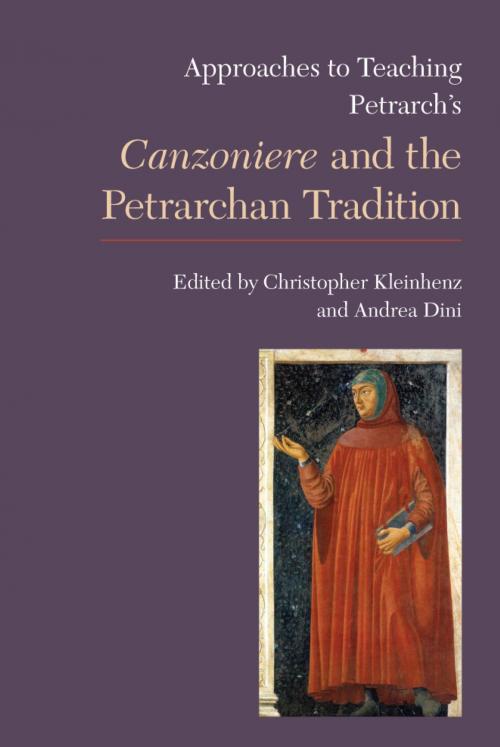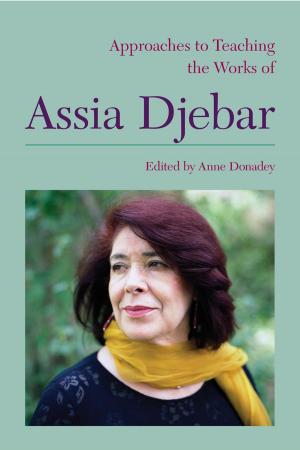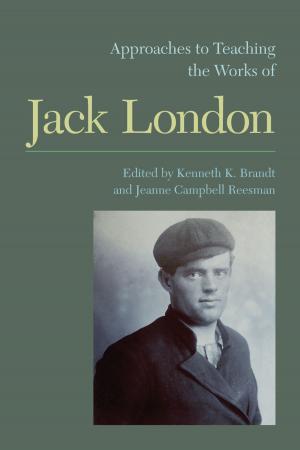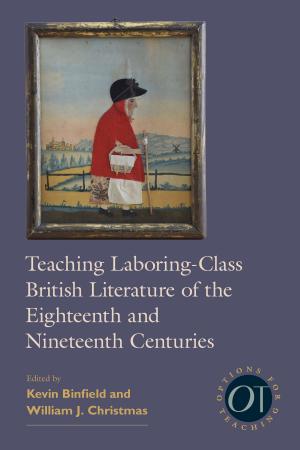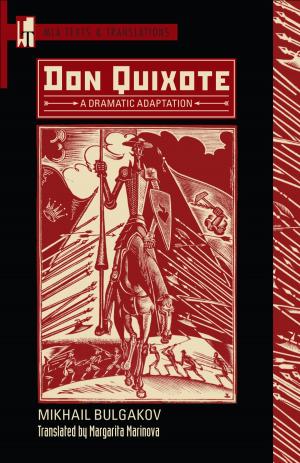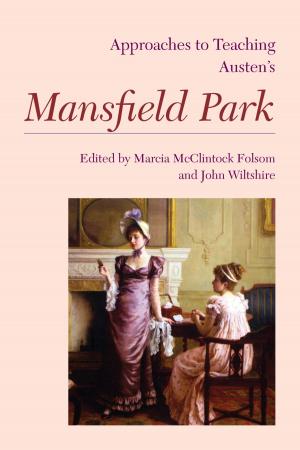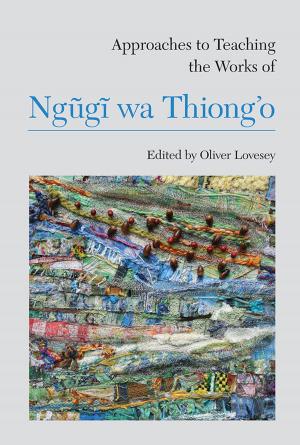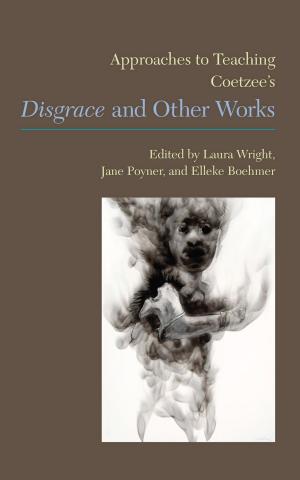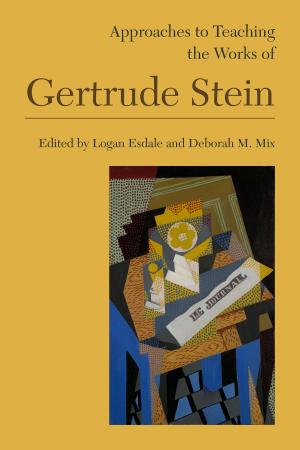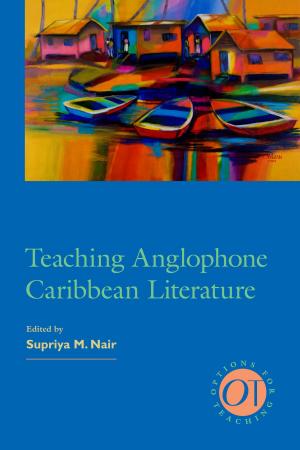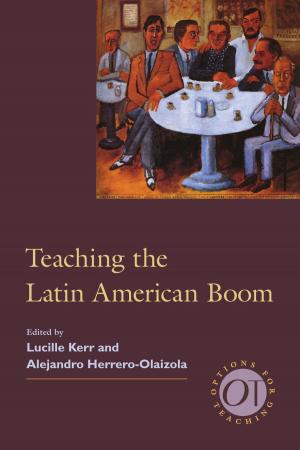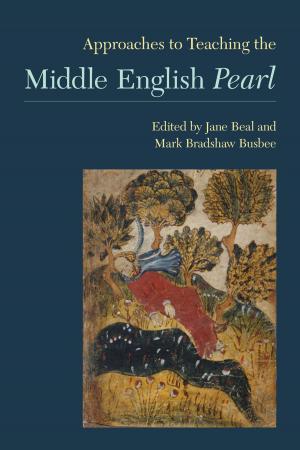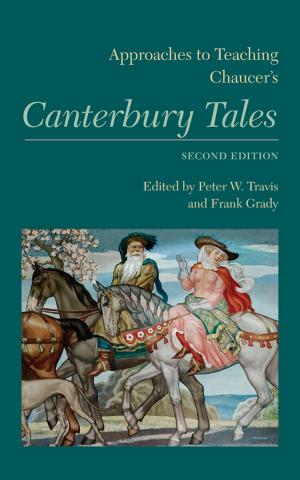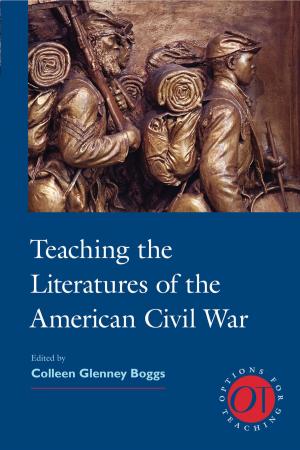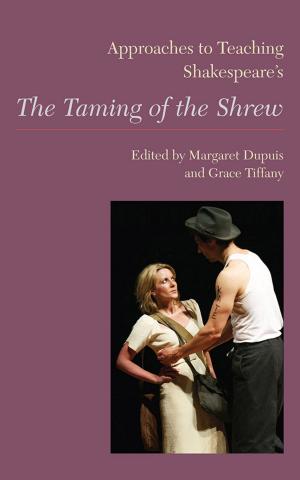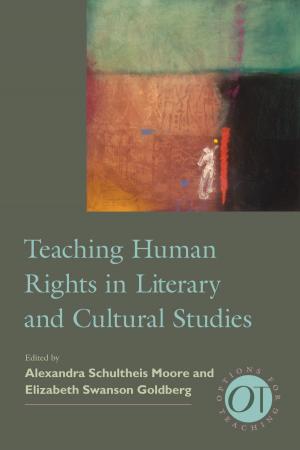Approaches to Teaching Petrarch's Canzoniere and the Petrarchan Tradition
Fiction & Literature, Literary Theory & Criticism, European, Italian, Medieval, Nonfiction, Reference & Language, Language Arts, Study & Teaching| Author: | ISBN: | 9781603291750 | |
| Publisher: | The Modern Language Association of America | Publication: | July 1, 2014 |
| Imprint: | The Modern Language Association of America | Language: | English |
| Author: | |
| ISBN: | 9781603291750 |
| Publisher: | The Modern Language Association of America |
| Publication: | July 1, 2014 |
| Imprint: | The Modern Language Association of America |
| Language: | English |
One of the most important authors of the Middle Ages, Petrarch occupies a complex position: historically, he is a medieval author, but, philosophically, he heralds humanism and the Renaissance. Teachers of Petrarch's Canzoniere and his formative influence on the canon of Western European poetry face particular challenges. Petrarch's poetic style brings together the classical tradition, Christianity, an exalted sense of poetic vocation, and an obsessive love for Laura during her life and after her death in ways that can seem at once very strange and--because of his style's immense influence--very familiar to students. This volume aims to meet the varied needs of instructors, whether they teach Petrarch in Italian or in translation, in surveys or in specialized courses, by providing a wealth of pedagogical approaches to Petrarch and his legacy.
Part 1, "Materials," reviews the extensive bibliography on Petrarch and Petrarchism, covering editions and translations of the Canzoniere secondary works, and music and other audiovisual and electronic resources. Part 2, "Approaches," opens with essays on teaching the Canzoniere and continues with essays on teaching the Petrarchan tradition. Some contributors use the design and structure of the Canzoniere as entryways into the work; others approach it through discussion of Petrarch's literary influences and subject matter or through the context of medieval Christianity and culture. The essays on Petrarchism map the poet's influence on the Italian lyric tradition as well as on other national literatures, including Spanish, French, English, and Russian.
One of the most important authors of the Middle Ages, Petrarch occupies a complex position: historically, he is a medieval author, but, philosophically, he heralds humanism and the Renaissance. Teachers of Petrarch's Canzoniere and his formative influence on the canon of Western European poetry face particular challenges. Petrarch's poetic style brings together the classical tradition, Christianity, an exalted sense of poetic vocation, and an obsessive love for Laura during her life and after her death in ways that can seem at once very strange and--because of his style's immense influence--very familiar to students. This volume aims to meet the varied needs of instructors, whether they teach Petrarch in Italian or in translation, in surveys or in specialized courses, by providing a wealth of pedagogical approaches to Petrarch and his legacy.
Part 1, "Materials," reviews the extensive bibliography on Petrarch and Petrarchism, covering editions and translations of the Canzoniere secondary works, and music and other audiovisual and electronic resources. Part 2, "Approaches," opens with essays on teaching the Canzoniere and continues with essays on teaching the Petrarchan tradition. Some contributors use the design and structure of the Canzoniere as entryways into the work; others approach it through discussion of Petrarch's literary influences and subject matter or through the context of medieval Christianity and culture. The essays on Petrarchism map the poet's influence on the Italian lyric tradition as well as on other national literatures, including Spanish, French, English, and Russian.
